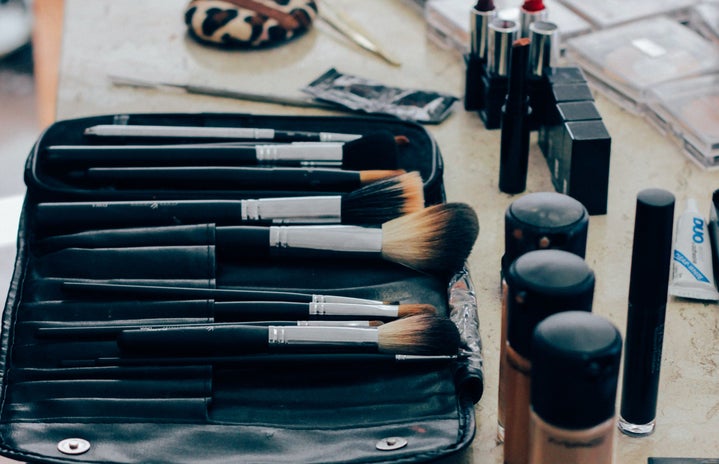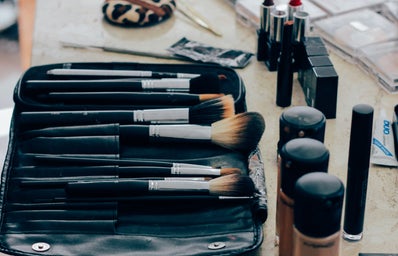Here are some important questions that you should ask yourself: Do you know what ingredients are in your mascara? Your body lotion? Your face wash? Can you really trust your daily cosmetic products?
Now is the time to become more engaged in environmental health! Research the ingredients that you are putting on and in your body. Reducing the amount of harmful ingredients that is in your beauty products and the food you consume now will decrease health complications in the long run. A chemical that may cause cancer and reproductive issues could easily be lurking in your cosmetics.
Some controversial ingredients in your cosmetic products can include lead, parabens, and formaldehyde.
According to the findings from the federal Food and Drug Administration, about 1 in 5 cosmetic products have formaldehyde in them. Formaldehyde is a carcinogen, or cancer-causing chemical. Formaldehyde can be found in building materials such as plywood, fiberboard, glues, adhesives, and insulation materials. Some hair-straightening products release formaldehyde. Lead can be found in certain hair dyes and lipsticks. Parabens are commonly found in shampoos and cosmetics. They contain estrogen-mimicking preservatives which can lead to reproductive and developmental disorders.
The ingredient “fragrance” is commonly seen on cosmetic products. But the word fragrance does not mean there is simply a vanilla or rose scent. “Fragrance” actually contains an average of 14 chemicals- none of which need to be listed because it falls under the category of fragrance. Do you really want to be putting a product on your body that will not even list of all of its ingredients? Fragrances can contain hormone disruptors and allergens. Try to buy fragrance free whenever you can.
You may ask, how are these chemicals legal? That’s a great question that everyone should be asking! To put this into perspective, the European Union has banned the sale of cosmetics or personal care products that contain ingredients or chemicals that are known or suspected to cause genetic mutation, birth defects, or cancer. Over 1,000 ingredients have been banned in the European Union, but only nine ingredients have been banned by the U.S. Food and Drug Administration.
Cosmetic products are tested in the United States, but mainly for dermatological reactions, allergies, eye irritations, and rashes; but it is the long term affects that are not. Factors such as cancer and reproductive harm are not examined.
Take your health into your own hands! Women are working to pass bills in Congress for better regulations within the cosmetic industry. Support their efforts by doing research, spreading the word, and by buying natural and organic cosmetic products. In the long run, it will be well worth it.

